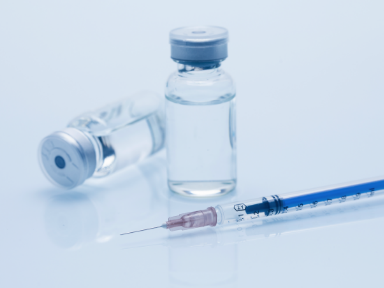firstwordpharmaJune 17, 2021
Tag: CureVac , COVID-19 , Vaccine , SARS-CoV-2
CureVac's stock was cut in half on Wednesday after the company reported that its vaccine candidate CVnCoV was only 47% effective at preventing COVID-19 disease of any severity in a second interim analysis, falling short of pre-specified statistical success criteria. The company said the new analysis of its global Phase IIb/III HERALD trial was performed "in the unprecedented context of at least 13 variants" circulating within the study population subset that was used to do the evaluation, with the original strain of SARS-CoV-2 "almost completely absent." However, it noted that the findings did show a "trend for age- and variant-dependent efficacy."
The HERALD study, which got under way in December and was conducted together with Bayer, enrolled approximately 40,000 participants in 10 countries in Latin America and Europe. Late last month, CureVac said an independent Data Safety Monitoring Board confirmed that the trial had "passed a first interim analysis at 59 adjudicated COVID-19 cases." According to the company, the second interim analysis included 134 COVID-19 cases occurring at least two weeks after the second dose of CVnCoV.

The company says sequencing of virus variants has so far been performed on 424 COVID-19 cases in the trial, with 124 included in the current analysis. Results showed only one of the infections was attributable to the original SARS-CoV-2 virus, while 57% were due to variants of concern. The company said most of the rest were caused by other "less characterised" strains such as Lambda or C.37, first identified in Peru, which accounted for 21% of infections, and B.1.621 first identified in Colombia, which was seen in 7% of cases. "In this context, the interim results suggest efficacy in younger participants, but did not allow to conclude on efficacy in the age group above 60," CureVac said.
Meanwhile, CEO Franz-Werner Haas stated that as CureVac "[continues] toward the final analysis with a minimum of 80 additional cases, the overall vaccine efficacy may change." He suggested that "the variant-rich environment underlines the importance of developing next-generation vaccines as new virus variants continue to emerge." CVnCoV is a lipid nanoparticle-encapsulated, chemically unmodified mRNA encoding the full-length SARS-CoV-2 virus prefusion-stabilised spike protein.
CureVac says it has communicated the available data to the European Medicines Agency and will decide "the most appropriate regulatory pathway" based on the "totality of the data" once the final analysis is available within the next few weeks. As CureVac's only major supply deals, the EU in November secured up to 405 million doses of CVnCoV, of which 180 million are optional. That was followed by a memorandum of understanding with Germany for another 20 million doses.
Meanwhile, some other COVID-19 vaccines have shown more promising results against variants. A recent real-world analysis conducted by public health officials in the UK, for example, found that two doses of Pfizer-BioNTech's vaccine Comirnaty (BNT162b2) and AstraZeneca's Vaxzevria have been very effective at preventing hospitalisations caused by the highly transmissible Delta (B.1.617.2) variant first detected in India.


Contact Us
Tel: (+86) 400 610 1188
WhatsApp/Telegram/Wechat: +86 13621645194
Follow Us:




 Pharma Sources Insight January 2025
Pharma Sources Insight January 2025


